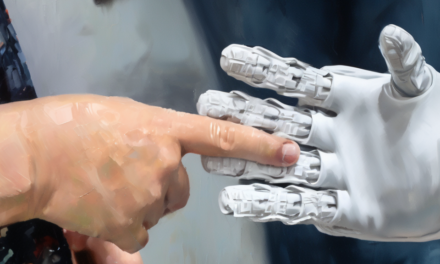New global research from Wipro-owned Designit reveals that AI-powered diagnostic tools are seen as the most transformative technology in healthcare.
According to the study, 61% of respondents identified AI diagnostics as the key driver of innovation in the sector, far outpacing other technologies such as telemedicine platforms and wearable monitors.
The survey, conducted across professionals in healthcare, technology, and design, highlights the growing consensus that AI diagnostics will play a crucial role in reshaping healthcare over the next five years. By comparison, telemedicine (12%) and wearable monitors (2.4%) were viewed as less impactful in driving immediate change.
Designit, which has worked with notable organisations such as Oslo University Hospital, Novo Nordisk, and Quickbird Medical, sought to identify which digital health solutions are expected to lead the future of healthcare. The results underscore a clear focus on AI’s potential to enhance diagnostic accuracy and improve patient outcomes.
Limited Enthusiasm for Blockchain in Healthcare
While blockchain technology once generated significant interest in the tech world, it was only cited by 3% of respondents as a transformative force in healthcare. One design lead suggested that blockchain still has untapped potential, particularly when used alongside AI. They remarked, “Once data goes on blockchains, we can finally go without most of the current security measures. This, in turn, will allow for true personalised AI tools to be used in conjunction with wearable monitors and telemedicine platforms.”
Despite this optimism, the findings indicate that blockchain’s role in healthcare remains underappreciated, with a greater focus currently on AI’s immediate applications.
Real-World Impact of AI in Healthcare
AI’s influence on healthcare is becoming more tangible. A recent trial in Britain demonstrated AI’s ability to assist medical staff in detecting potentially cancerous lesions in the bowel—an area where human diagnosis alone often falls short. This example highlights the real-world potential of AI in enhancing the accuracy and speed of medical diagnostics.
Dr Pardis Shafafi, global responsible business lead at Designit, spoke about AI’s growing role in healthcare: “With AI moving beyond the hype cycle, the focus has shifted to real-world use cases across industries. As our poll has identified, AI diagnostics is a potentially transformative technology in healthcare, offering real hope for improving patient outcomes.”
Shafafi also stressed the importance of maintaining rigorous standards for AI development and implementation to ensure its responsible use. “Without these measures in place, AI application in healthcare runs the risk of cutting corners and taking shortcuts for cheaper and lower quality healthcare delivery for the many, to the long-term detriment of society as a whole.”
The Need for Training and Careful AI Integration
As AI diagnostics continues to grow in prominence, there are concerns about how healthcare professionals will integrate these tools into their practice. Shafafi emphasised that proper training for medical professionals is essential to avoid potential negative consequences. “If we rush its adoption without these necessary safeguards and expertise, there is the risk of doing substantially more harm than good,” she warned.
The findings suggest that while AI offers significant potential for improving healthcare, it is crucial to ensure that its implementation is carefully managed. Both the medical and technological sectors will need to collaborate closely to provide the right training and oversight to avoid the pitfalls of premature or unregulated adoption.
With AI diagnostics positioned as a key technology for the future of healthcare, the challenge remains in balancing innovation with ethical and practical considerations. As the industry moves forward, ensuring that AI is used responsibly will be critical in realising its full potential without compromising the quality of care.






